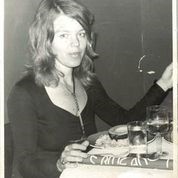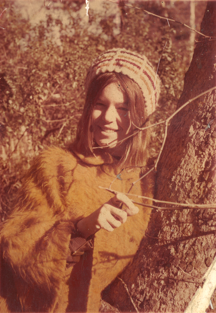Tom Brokaw hit on #MeToo when I was a young reporter
Mary Reinholz
First published May 1, 2018, in The Villager, A Manhattan weekly.

Tom Brokaw
[The writer says when she was a reporter in Los Angeles, Tom Brokaw — after helping her get a police report for a story she was doing for the L.A. Free Press — made a sudden unwanted sexual advance: He tried to put the moves on her, abruptly embracing and French kissing her, she said.]
A recent e-mail from the Newswomen’s Club of New York reminded me that I had been confirmed to attend an April 5 panel discussion called “#MeToo for Journalists: Where have we come from and where are we going?” at The New York Times’ skyscraper, that glassy and classy 52-story edifice at Eighth Ave. and 40th St.
The Times seemed the right place for such a gathering: The Newspaper of Record was soon to be awarded three Pulitzer Prizes on April 16, one for public service that it shared with The New Yorker for documenting stories of sexual harassment from multiple women who claimed they were abused by disgraced movie mogul Harvey Weinstein. The coverage galvanized the #MeToo movement.
On a personal level, the movement ignited vivid memories for this aging freelance scribe. I recalled getting hit on by several powerful men in the news business during my 1960s young adulthood, among them NBC heavyweight Tom Brokaw, then anchor of the late-night KNBC affiliate in Los Angeles. He’s now 78, an NBC special correspondent accused last week by two younger women of sexual misconduct when he was the famous anchor of NBC Nightly News in the 1990s. He has strongly denied the charges.
For the record, Brokaw made a pass at me 50 years ago in my rented hillside house not long after he had obtained, on my request, the arrest record of a fraudulent advertiser for the now-defunct Los Angeles Free Press, granddaddy of the Southern California alternative press.
The Los Angeles Police Department had refused to provide the left-wing weekly with this information for an article I was assigned by managing editor Ted Zatlyn. He asked me to investigate the advertiser as a service to the Freep’s readers. I asked Brokaw to contact the L.A.P.D. and get the report. We had met earlier at press conferences when I was a staff reporter for a small suburban daily. We both wrote for West, The Los Angeles Times magazine.

Mary Reinholz out on a date in New York around 1975.
Brokaw recited the dirt he got from the L.A.P.D. to me on the phone. After my story was published, I called him to say thank you and somehow it came to pass that we decided to meet at my Laurel Canyon cottage on a weekend afternoon. I clearly recall his driving a motor scooter and sitting next to me on my mother’s sofa in the living room.
We talked and then, abruptly, he was embracing me and giving me a French kiss. I pulled away, reminding him that he was married and a tryst was out of the question. He said, “Yes, it would be unfair to Meredith,” meaning his wife.
I don’t recall much else about the episode, and shrugged it off as progressive women of my generation were wont to do. After all, we were overthrowing the sedate 1950s and its dictates that good girls should never engage in premarital sex. I had been married but wasn’t interested in Brokaw as a sex partner and the situation made me uncomfortable.
Even so, I liked him and wanted to stay friendly. I even called him a couple of times for one reason or another in Los Angeles and once in the early 1970s after I relocated to New York. By then he had been tapped as NBC’s White House correspondent. He was polite, and gave me the telephone number of a government agency I wanted to contact. I never saw him again.

Mary Reinholz in 1969-70 in a photo taken by her then-boyfriend Don Strachan not far from the Laurel Canyon cottage in West Hollywood Hills that she shared with him. Strachan was an editor for the Los Angeles Free Press, and wrote an antiwar column called “Shaft the Draft.” Photo by Don Strachan
That didn’t bother or surprise me much. I wouldn’t be writing this account if it wasn’t for the #MeToo movement and Brokaw’s disparaging remarks about Linda Vester, a former NBC News reporter and war correspondent who accused him of groping and kissing her on two occasions and arriving at her hotel uninvited. Brokaw denounced the reports of her allegations, contending he had been “perp walked” across the pages of both Daily Variety and the Washington Post on April 26.
He also claimed in an unsubstantiated NBC statement that Vester was motivated by a “grudge” against the network and had no “distinctive” career achievements. Brokaw’s other accuser, a former NBC production assistant, was anonymous.
Why would the two women lie? Money does not appear to be Vester’s motivation. She reportedly has said she doesn’t want to file a lawsuit and only wants to shed light on the sexist work culture at NBC News. I believe her story is credible. I also believe that the dozens of female NBC employees, past and present, were telling the truth as they know it when they announced their backing of Brokaw in a letter last Friday, calling him a man of “tremendous decency and integrity.”
However, on Monday, the New York Post’s Page Six reported that female staffers at NBC News — particularly, lower-level staffers — say they were “pressured” to sign the letter, and felt there would be “repercussions” if they didn’t. Names of heavy hitters at NBC backing Brokaw include Rachel Maddow, Maria Shriver, Andrea Mitchell and Mika Brzezinski.
Meanwhile, this writer remains interested in covering controversial subjects, which is why I attended the aforementioned #MeToo program at The New York Times’ Midtown building. The event was co-hosted by the august Newswomen’s Club of New York, whose members once included Eleanor Roosevelt. Panelists were Jessica Bennett, the first gender editor at the Times and author of “Feminist Fight Club, A Survival Manual for a Sexist Workplace”; Koa Beck, editor in chief of Jezebel, and Meredith Mandell, a vice president of the club and lead legal producer at MSNBC.
The club had rented a conference room on the 15th floor of the Times tower, where immense windows provided spectacular views of the Manhattan skyline. There were two no-cash bars on either side of the room and a table that held complimentary copies of Bennett’s paperback. I surveyed the scene, which soon swelled to about 100 people, including a smattering of men.
From afar, Jennifer Cunningham, the president of the Newswomen’s Club and an award-winning alum of the New York Daily News, welcomed all.
Mandell, the moderator, who was dressed in a red suit like it was Christmas, yelled: “O.K., we’re at the New York Times!”

The writer today, in the clothes she wore to a recent discussion about women journalists and the #MeToo movement hosted by the Newswomens’ Club. Some aspects of the movement irk her, such as the idea of dressing all in black — so she consciously chose to wear a colorful ensemble.
Within 15 minutes, I joined two other older women and bolted out of the Vatican of Newsdom, barely able to hear panelist Bennett recite how the Harvey Weinstein saga broke. But at least I had picked up a copy of her “Feminist Fight Club.” Yes, the struggle would continue with a new generation of women journalists looking to report the news without fear or favor.
Walking toward the elevators, I became aware that the floors were unusually clean and shiny.
“They wax them every day,” said a security guard, a grizzled veteran of The New York Times, who rode down with me to the ground floor.
He acknowledged things were livelier at The Times’ old headquarters before the paper moved into the new building in 2007. Indeed, it was at that hallowed building on W. 43rd St. where I met an elegant now-deceased Timesman at the Sunday magazine who assigned me a story on a runaway kids in the East Village in 1971. He later suggested getting it on when I was living at the bohemian Chelsea Hotel, noting it “wouldn’t hurt” my career. He apologized later.
I’m too old now for such experiences, but the beat goes on, and so, strangely, do I despite my hearing loss and the vicissitudes of growing old.
“It’s so quiet here, like a funeral home,” I joked. “Why don’t you set off a firecracker?”
The security guard smiled. “I can’t do that anymore,” he said.
The night was clear and cold. I headed for my Downtown rent-stabilized apartment on foot, mingling with ordinary people who were laughing, cursing, eating pizza slices and rushing to catch cabs. It felt good.
Mary Reinholz
reinho4@aol.com
Comments
Leave a Reply
You must be logged in to post a comment.



